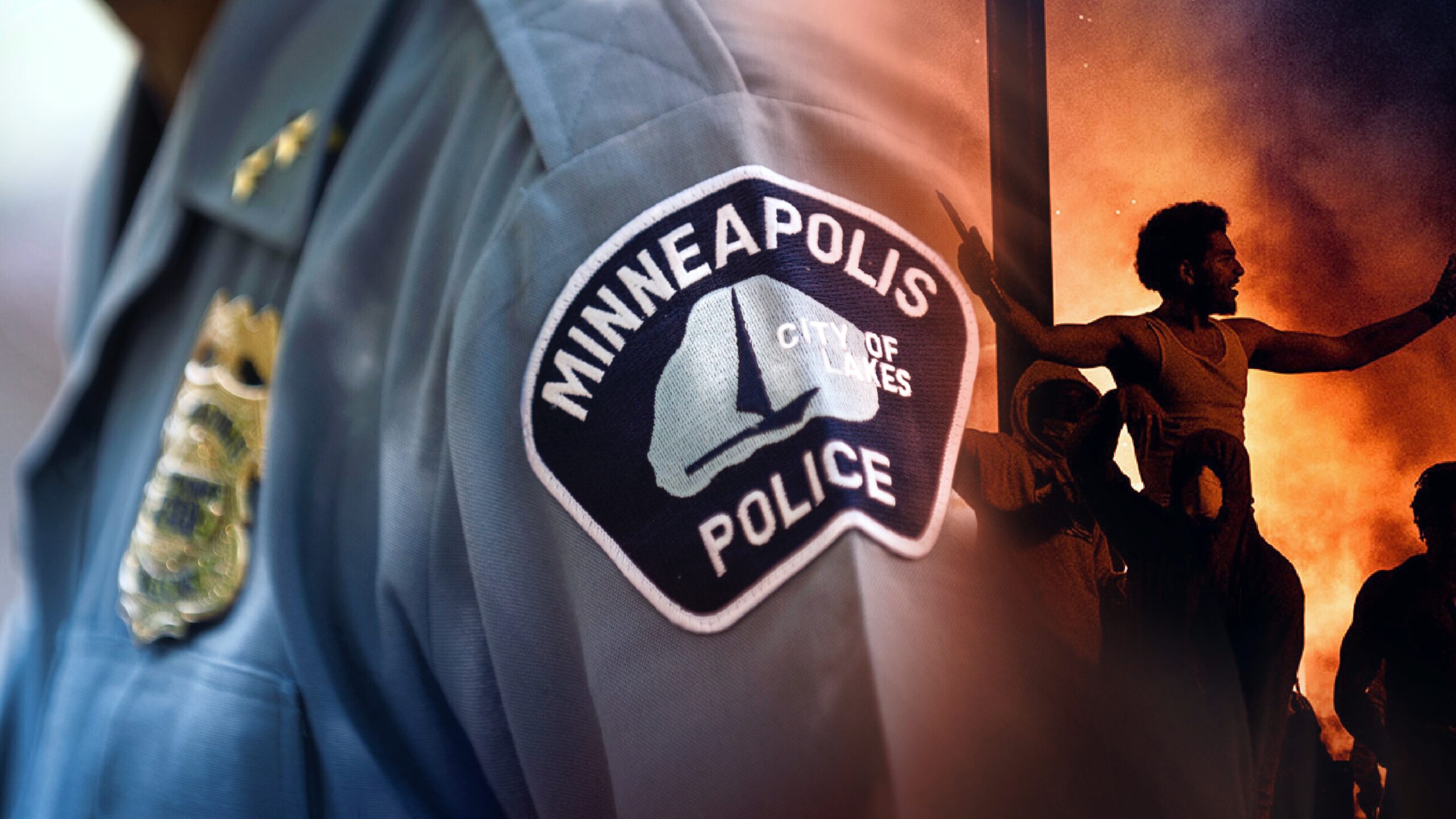On November 2, Minneapolis voters said “No” to defunding the police. 56% of voters rejected a ballot measure that was aimed at permanently defunding and eliminating the city’s police department.
Minneapolis garnered national notoriety after protests to “defund the police” spread across the county. The protests were a response to the May 2020 killing of George Floyd by a Minneapolis police officer.
An advocacy group, “Yes 4 Minneapolis,” fought to place the measure, titled “Question 2,” on November’s ballot as part of a radical effort to fully disband the Minneapolis Police Department by December 2, 2021.
Leading up to Tuesday’s election, the ballot measure was highly contested, including being the subject of litigation that ended at the Minnesota Supreme Court.
“The Police Department, and its chief, would be removed from the City Charter,” according to the ballot measure’s explanatory note. Litigants warned that, if passed, the city would not have been required to employ a single police officer.
“City residents will be left to fend for themselves,” litigants opposing the measure had argued.
The measure would have required city officials to quickly design and fund a new safety department, employing “a comprehensive public health approach,” to fill the gap of the disbanded police force.
In September, a Minnesota District Court prevented the measure from being placed on the November ballot. Judge Jamie Anderson, in a 17-page ruling, explained that ambiguities in the ballot’s language were “likely to create ‘chaotic situations’ in the City of Minneapolis,” including “dangerous situations in neighborhoods within the city.”
Judge Anderson wrote, “routine activities done to keep Minneapolis residents safe, including responding to 911 calls and making arrests of those charged with violent felonies,” could be interrupted if the measure were passed and the city failed to timely implement a replacement for police.
Advocates quickly appealed Judge Anderson’s ruling to the Minnesota Supreme Court. In a 3-page decision, with little explanation, Chief Judge Lorie Gildea entered an expedited order directing that the measure be placed on the November 2021 ballot.
“We’ve got some problems in the Minneapolis-St. Paul area,” commented Jan Markell, President of Olive Tree Ministries, during a recent Bible prophecy conference. Markell’s remarks were directed at what she perceives as an increased lawlessness in the region.
Markell, whose ministry is headquartered in the Minneapolis suburbs, said she’s needed teams of “10, 15, maybe even 20 guys” to provide armed security at her previous conferences for protection from an increasingly unsafe environment in the city.
The ballot measure required more than 50% of the vote to pass; voters rejected the measure with a final tally of 44% voting in favor and 56% in opposition.
Tuesday’s election result sent a strong signal that a majority of citizens stand with police and oppose inviting criminality into the nation’s cities.
Biblical Relevance
During a June 2020 White House meeting with law enforcement officials, then President, Donald J. Trump, responded to efforts to “defund the police.” He soundly rejected the progressive agenda, declaring, “there won’t be defunding, there won’t be dismantling of our police, and there’s not going to be any disbanding of our police.”
President Trump observed that criminal activity within our nation is kept at bay by the faithful service of America’s courageous peace officers. “There’s a reason for less crime,” remarked President Trump, observing that “it’s because we have great law enforcement.” He concluded that “our police have been letting us live in peace.”
Scripture teaches that civil authority, including police, is established to restrain lawlessness in society. Romans 13:4 expressly states that authorities, like peace officers, “are God’s servants, sent for the very purpose of punishing those who do what is wrong.”
Tim Barfield, a law enforcement veteran and Chief of Police in Wellington, Ohio, writes that “America was founded on Biblical principles.” With this, Barfield argues, “Romans 13 lays out that the commission of the civil government is to stand against evil.”
Chief Barfield contends that eliminating police from society is to invite evil, explaining that “evil is the war [police] are fighting against,” and scripturally, “law enforcement is the hand of the civil government and [the role of police] is to bear the sword against evil.”
In a 1970s New York Times article, Billy Graham wrote, “The Bible teaches that there will be a future generation with certain characteristics to indicate that the end of the age is near.” One of these discernible signs is an observable and exponential increase in lawlessness (Matt. 24:12).
The example, in Minneapolis, of advocacy groups gaining traction through well-funded and organized efforts to eliminate police departments, is a sign of the times.
Although the Minneapolis ballot measure was defeated, still, it was a slim majority that stood against the lawlessness that could have resulted from disbanding the police.
It should not be dismissed, as insignificant, that 44% of Minneapolis voters took the radical position of voting in favor of a measure by which “The Police Department, and its chief, would be removed from the City Charter.”
Minneapolis Mayor Jacob Frey, addressing the failed measure, said, “There will be many that will try to argue that this is a blow to reform. That is dead wrong. Reform has begun, but it must continue.”
Frey’s comments underscore that progressive advocacy groups will not cease in their efforts. Although they may not have succeeded, this time, they will not be deterred in seeking to advance their agendas.
Billy Graham observed that “it’s the duty of every individual Christian at election time to study the issues, study the candidates, then go to the polls and vote.” Christians must not abandon their role, as citizens, to restrain radical trends within society.
Many of today’s political issues intersect with Biblical values. It is important for Christians to stay informed and engaged in advocating for righteousness. This includes exercising the right to vote, as a means to maintain and advance godly policies within our communities.
Brandon Beckham joined Harbingers Daily in 2021 as a News Reporter. A licensed attorney, Brandon received his law degree from the David A. Clarke School of Law, his M.Div and Th.M from Liberty University Baptist Theological Seminary, and B.A. in philosophy from Boise State University.



